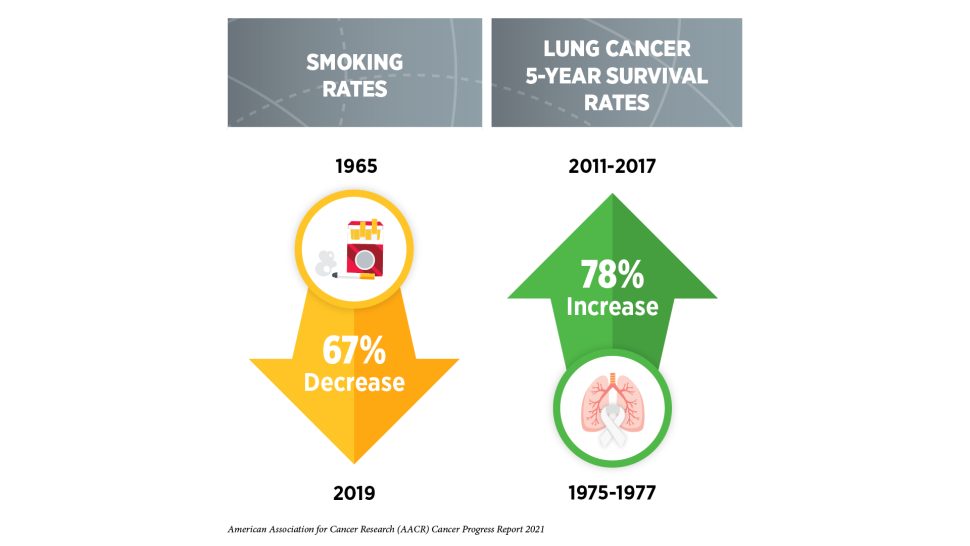AACR Releases Cancer Progress Report 2021
On Wednesday, the American Association for Cancer Research (AACR) released its annual Cancer Progress Report. Now in its 11th year, the report details advances in the cancer research continuum, provides a comprehensive review of anticancer drugs, diagnostic tools, and devices approved by the U.S. Food and Drug Administration in the past year, shines a light on patients’ experiences, and explains how federal investments in the National Institutes of Health (NIH) and the National Cancer Institute continue to drive progress for patients with cancer.
This year’s report also commemorates the 50th anniversary of the National Cancer Act, which was signed into law by President Richard Nixon on December 23, 1971. This groundbreaking legislation laid the foundation for the scientific advances that have contributed to decades of progress for patients in the U.S. and around the world. Highlights include:
- In the U.S., the overall age-adjusted cancer death rate has decreased by 31 percent from 1991 to 2018, a reduction that translates into 3.2 million lives saved. This reduction includes a record 2.4 percent decline between 2017 and 2018, the largest reduction ever seen in a single year.
- Successful efforts to reduce smoking rates among Americans have contributed to a dramatic increase in lung cancer survival since the 1970s.

- Fueled by discoveries made over the past 50 years, molecularly targeted therapeutics and immunotherapeutics have substantially increased the five-year survival rates for patients with formerly intractable cancers, like lung cancer and metastatic melanoma.
Currently, the cancer research community is working to recover from the effects of the global coronavirus pandemic, which shuttered many research operations and disrupted cancer clinical trials. This year’s report includes clear policy recommendations, such as a request to Congress to provide at least $10 billion for the NIH in emergency supplemental funding to restart research and clinical trials that have been put on hold due to the pandemic.
“We are at an inflection point in cancer research,” said Margaret Foti, PhD, MD (hc), chief executive officer of the AACR. “As the cancer research community and our country as a whole recover from the impact of COVID-19, ensuring that medical research remains a national priority is essential if we are to continue our progress toward the goal of preventing and curing all cancers at the earliest possible time.”
AACR President David A. Tuveson, MD, PhD, FAACR, echoed that message, lauding the advances made since the signing of the National Cancer Act and looking toward the future.
“Fifty years in, we have made progress—measurable progress,” Tuveson said. “We also have work to do. I’m excited that the AACR is a big part of charting that next phase.”
a full list of resources related to the AACR Cancer Progress Report 2021.
The AACR Cancer Progress Report 2021
Infographics illustrating key themes of the report
AACR press release on the report
Information from the National Cancer Institute on the National Cancer Act
A recording of the Congressional briefing held Wednesday, Oct. 13
A video charting “50 Years of Progress Against Lung Cancer”
A video showcasing research on the KRAS gene mutation
AACR Stories, featuring Tuveson and a lung cancer patient whose disease has been controlled by a newly approved drug



